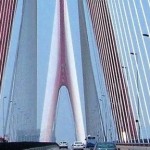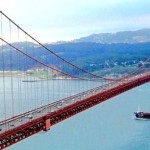Free Spirit Climbing | … back to the Middle-Ages?
Recently I was invited to study the unique survival strategies of citizens living near Strasbourg in a little town located in the Metropolitan Upper Rhine Region in Germany.
In ancient times, round about three thousand people had been living there before an unhappy end occurred… Learning from history can be so great. It is worth reading. Therefore, I didn’t expect to be sent back to the Middle-Ages on this guided tour, especially not so far back into the 14th century, due to the fact that it was devastated in 1689 by soldiers from Central and Northern Europe.
Learnt lessons from the experts in ancient times
An unexpected architecture style, realized by experts at that time, was revealed by a researcher. She has good agricultural wisdom from the Middle-Ages. At that time, you may have asked yourself: “what could farmers do today what was known more than 600 years ago?”
This is certain: The important facts were hidden until the end of the 20th century. And, some secrets will never be revealed, caused by the behaviours’ of new investors in that town, which could never be also yours, or?
#WhyNotNOGO?
For sure not, this is our strong believe in the good character of people all around the world. So, we may enter the tour now and realize that all of its houses were built on a little hill: at least 12 meters higher, high enough that a local river’s flood waters shouldn’t reach the ground levels of the planned buildings. Therefore, all citizens can use a special cellar system.
War stratagems: Sunzi made in Germany?
Furthermore, the early and wise knowledge about stratagem in daily life, used then in war times, too. It helped the citizens to stop the risks of broken food or interrupted water supplies made by third person’s bad influence.
Using a ruse or you may say it is a trick, just like opening quite often the two gates of the city, the aggressors couldn’t find anybody there except their own wild troops looking for food and water, money and more before returning home towards Northern Europe in the 17th century’s religious war. As a result of having burnt all the environment, stables and houses, and the thick wall around the well protected city was cut by 50 percent down to 20 meters.
How could most of the citizens survive?
Furthermore, historic sources report about one week bright light during the nights, so that the author could read books, even at a distance of 15 kilometres. However, and this is a surprise, rebuilding was possible within one hundred years due to smart city management: the still existing channels under the city were re-used and houses were built on top. The religious writer C. S. from a little village located 15 km close to this city documented the hell of fires, a war crime of the year 1689.
External Water Supplies
The traditional wooden houses in that city were constructed within a well protected shield of an unbelievable high wall, measuring between 35 to 40 meters. All-in-one the city had a unique and really special cellar system enabling the citizens to exit the area – the risky war zone – within shortest delay at daytime or much better at night.
The usage of candles rescued their life, indicating that there was enough fresh air in the one-way rescue tunnel system. Those salient construction methods helped them organize quick support in urgency cases: friends and organizations reached from outside, even from other countries like France or Switzerland. This must have been then a big surprise to several temporary aggressors, planning to invade the city as foreign soldiers with best manners…. However, their uniforms did not impress the employees of farmers, pretending poverty: this ruse was also used in ancient China, too.
On top, water supply was always delivered as a guarantee in life: it was kept as a business secret between farmers in the mountains constructing hidden water channels in the underground. Unfortunately this hidden pipeline system cannot be studied anymore. Using special materials to form those water pipelines, this method guaranteed fresh water supplies until the 20th century. Nowadays, more than 30.000 citizens working and living in centre of the town, have drastic influence on the level of ground water. It sank by two meters already: this trend will not end…
Why water management?
It is worth mentioning, that details about water management were held strictly confidential in the Middle-Ages. This seems to be a surprise based on more than 600 years history of that town. You can understand it that the origin of this decision was the created by a beer and fine wine manufacturer. His production motto was: “water counts!”.
Social Responsibility
With the beginning of October, winter time arrived regularly at that early times. The hay and vegetables had to be already stored in a special cellar system. And then the fresh cut grasslands could be transformed in an innovative location where the local river water could be transferred into pieces of ice by filling special moulds in the natural pathway of the river. Thus, the fresh water could be stored for a long time using only natural energies: frozen pieces of ice in a special isolated cellar covered stable temperature during the whole year. And modern people may shout today: “So smart, wasn’t it?”
The healthy profit made by hidden logistics know-how in a beer and restaurant company grew faster and quicker than expected when adding a fine wine production with higher margins on this healthy liquid (remember: by consumption of it in small quantities). Both production lines were hidden secrets – therefore always located under the city. This means that such intelligent management thoughts enabled those rich business’ people offering additionally a free of charge health service as we call it today social responsibility. This is new and sensational for the Middle-Ages: a real surprise.
Why not Back to the Middle-Ages?
Providing qualified services and in times with no rain or too cold temperatures deep frozen food was sold to minimum prices to the employees and helpers including their family members. As a result, elder people received on top of daily care then one fresh portion of 0.75 to 1.25 litre of fine wines – was it red and/or white wine? – extra selected and refined for the patients in a free-of-charge hospital in the underground (its shareholders received more wine: it could be sold.)
Summary: These social functions remained stable even in case if enemies tried to block incoming delivery of goods or destroyed pipelines of public fountains. Now, wondering, how these facts could remain always secret, we can make forecasts to the 21st century.
Outlook into our modern times
It is sad to see that only four cellars can be visited – this is due to the following facts:
– Start-Up-businesses destroy remaining cellars before historical teams may arrive and stop the construction works.
– The risk of waiting years until the business may start later is evaluated as much too high.
– Investors’ decisions might be blocked from researchers’ work.
These might fear it could involve results like the short formula: “innovation vs. historic wisdom”. Why not destroy history before…?
Please note: Recently a cut of water and/or energy makes cities dependent today and even more in the 14th century. Nowadays, we are missing more grassland zones to handle flood water from rivers: redirected, bigger damages on the infrastructure can be avoided.
Finally, it is worth to mention that two hours insight in a hidden architecture system revealed so surprising know-how based on the Middle-Ages, developed 600 years ago by smart entrepreneurs, already acting with a social responsibility for their own staff and families.
Looking up to the blue sky while leaving the last of the four remaining cellars, you may explore then the above shown crafted arts work; engaged students of a school had invested their time at the end of the 20th century in doing research work in one cellar within a rescue tunnel system. Their impression was “walk with open-minded spirits upwards on our building as a free climber and find out what’s next!”
So, why not go ahead in the research on the “Free Spirit Climbing” – a transfer from the Middle-Ages to the 21st century.
Thank You for
Your interest and
Your esteemed time…







